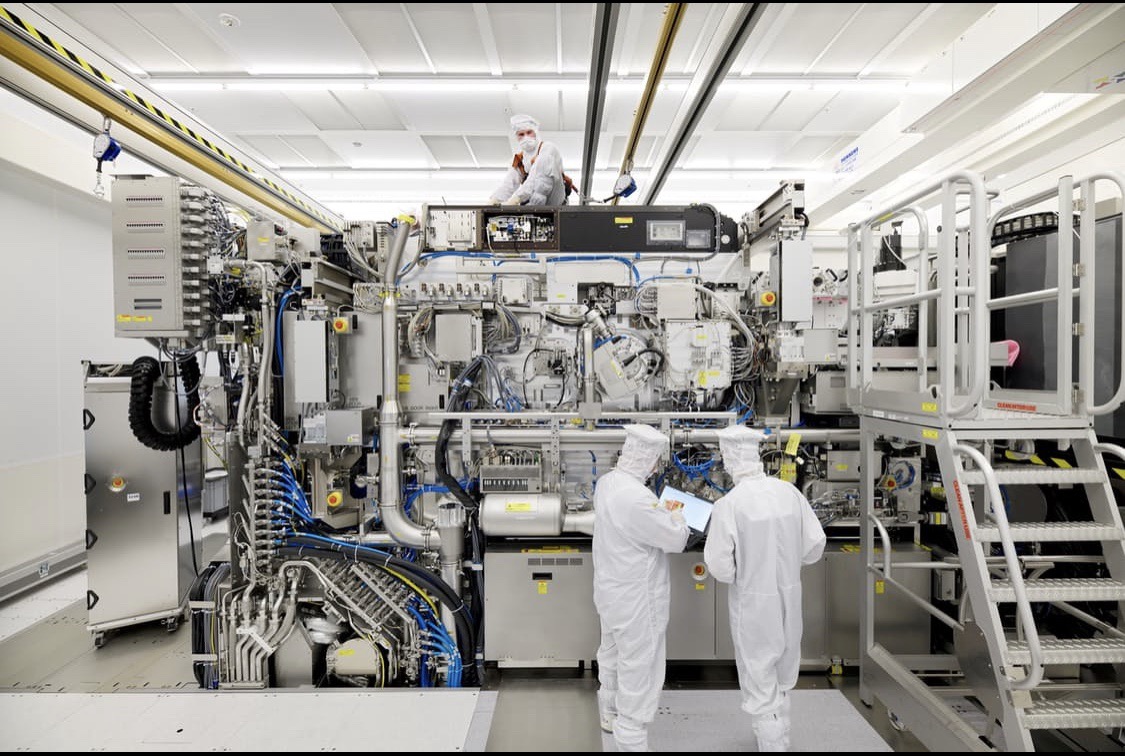[From Chisato Horiuchi in Tokyo, Japan]

The photo is Reuters
The performance of semiconductor manufacturing equipment manufacturers around the world is expanding rapidly. In the most recent quarter, all nine major companies, including Tokyo Electron announced on the 16th, posted a year-on-year increase in profits. Total net income is the highest ever. Amid the rapid increase in demand for semiconductors, the high performance of semiconductor manufacturing has also been combined, and customers' willingness to invest in semiconductor manufacturers has become even stronger. On the same day, Tokyo Electron revised its consolidated net income forecast and dividend plan for the fiscal year ending March 2022 upward.
Tokyo Electron has revised its consolidated net income forecast for the fiscal year ending March 2010 up 52% from the previous fiscal year to 370 billion yen, up 40 billion yen from the previous forecast. Expect a record high. "There is a very strong demand for DRAM (which is a semiconductor memory) and logic," said Ken Sasakawa, general manager, at an online press conference.
President Toshiki Kawai also emphasized that "the equipment market for front-end processes is expected to grow positively next year." The annual dividend is planned to increase by 408 yen to 1189 yen, which is 128 yen higher than the previous plan. The market also responded to good performance and dividend increases. Stock prices are rising on the private trading system (PTS) operated by a securities company on the afternoon of the 16th.
Now, the world's semiconductor device manufacturers are booming in historic achievements. Nine companies, including Applied Materials (AMAT) in the US and ASML in the Netherlands, posted net income of 6.1 billion dollars (about 670 billion yen) in the April-June period (partly in the May-July period), an increase of 70% from the same period of the previous year. It's the highest ever. This is the seventh consecutive quarter of profit growth for the first time in about six years. Data was calculated using QUICK / FactSet (some market forecasts).
"Strong demand for semiconductors and higher performance have led to increased investment by customers." Tim Archer, CEO of Lam Research, explains the background: In addition to industrial use such as factory equipment, the number of semiconductors installed in automobiles, home appliances, smartphones, etc. is increasing explosively. The new coronavirus is booming for games and personal computers, and demand for power semiconductors that efficiently control power by supporting decarbonization is also increasing. Semiconductor manufacturers are expanding their investment due to global shortages.
According to the World Semiconductor Market Statistics (WSTS), the global semiconductor market is expected to reach 573.4 billion dollars in 2020, the highest ever since 2019. Along with this, Advantest and SCREEN Holdings, which have a high market share in the front-end process and the back-end process, have also revised their earnings forecasts for the fiscal year ending March 2020 upward.
However, there are also concerns about the reaction to orders that are too booming.
At present, orders received from disco, a major cutting and polishing equipment company, increased by 60% from the same period of the previous year, and Advantest, a major inspection equipment company, has risen to a historic level of less than three times. While some equipment manufacturers have doubled the delivery time, customers are accelerating their orders. Mr. Takeshi Hanaya of SMBC Nikko Securities pointed out in a report following the announcement of the financial results of the disco that "there are concerns about cancellation due to peak out of orders and duplicate orders."
The global shortage of semiconductors is also a hindrance to manufacturing equipment manufacturers. This is because it is becoming more difficult to procure parts such as semiconductors necessary for making manufacturing equipment. Management has expressed concern from the front-end process to the back-end process, and Disco President Kazuma Sekiya said, "The surplus inventory (of semiconductors) is barely enough. The shortage will not be resolved. " The shortage of materials is spreading to general-purpose products other than semiconductors, such as connectors and cable bears, and it is likely that profit growth will be depressed.
Stock prices are beginning to make a difference, partly due to concerns over a slowdown in the memory market. Looking at the current rate of stock price increase / decrease at the end of 2008, ASML is up 67%, the highest among the nine companies. One of the evaluation axes is the strength of competitiveness in advanced fields. ASML has the advantage of exclusively supplying "EUV (extreme ultraviolet) exposure equipment" necessary for cutting-edge semiconductor production. These stocks are highly recession resistant and easy to read.
On the other hand, stock prices of post-process stocks such as US Teradyne and Disco, which are likely to be subject to investment restraint by semiconductor manufacturers during the recession, are weak. "Amid concerns about the peak out of memory, funds are flowing to companies that can capture the demand for advanced investment," said Norio Imanaka of Rakuten Securities Economic Research Institute. Among them, sorting has begun. (Saki Masuda)






